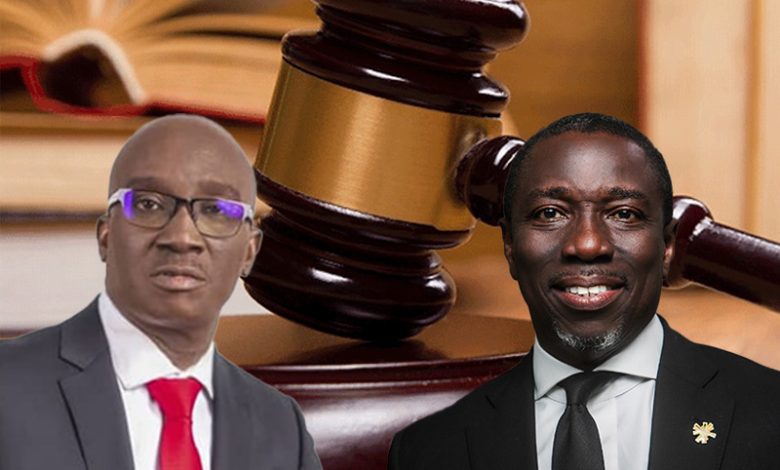
The Court of Appeal in Abuja has reserved its judgment in multiple appeals challenging the outcome of the September 21, 2024, Edo State governorship election, in which the Independent National Electoral Commission (INEC) declared Monday Okpebholo of the All Progressives Congress (APC) as the winner.
A three-member panel led by Justice Mohamed Danjuma announced that the court would communicate the date of the verdict to all parties after hearing final arguments from the counsels involved.
Among the cases heard was a principal appeal filed by the Peoples Democratic Party (PDP) and its candidate, Asue Ighodalo, as well as a cross-appeal submitted by the APC and Okpebholo.
Two additional appeals were brought by Action Alliance (AA) and its national chairman, Rufai Omoaje, and another by Bright Enabulele of the Accord Party.
Counsel to the PDP and Ighodalo, Robert Emukpoeruo, SAN, urged the court to overturn the April 2 decision of the Edo State Governorship Election Petition Tribunal, which had upheld Okpebholo’s victory. Emukpoeruo argued that the tribunal failed to properly assess the nature of the alleged non-compliance with the Electoral Act.
Central to his argument was the alleged omission of serial numbers on Form EC25B, which, under Section 73(2) of the Electoral Act, 2022, are required to validate election materials distribution.
“Our case was never about how the forms were filled but that the forms did not contain the mandatory serial numbers. This was a documentary flaw, not one requiring oral testimony,” Emukpoeruo explained.
He dismissed the tribunal’s claim that evidence was “dumped” without proper context, arguing that in cases of documentary irregularities, oral witness accounts are not essential.
He further asserted that discrepancies between ward-level collation and polling unit results were sufficient grounds for judicial review.
However, counsels for the respondents countered those arguments, urging the court to uphold the tribunal’s verdict and dismiss the appeals.
Onyechi Ikpeazu, SAN, representing INEC, described the appeal as “an academic exercise” with no practical relevance, arguing that the appellants failed to prove substantial non-compliance with the Electoral Act.
Similarly, APC counsel Emmanuel Ukala, SAN, and Kanu Agabi, SAN, for INEC, aligned in urging the appellate court to affirm the tribunal’s judgment, asserting that the elections were lawfully conducted and transparently concluded.
The Edo State governorship election was one of the most closely watched contests of the year, seen as a bellwether ahead of the 2025 general elections. Monday Okpebholo’s emergence as governor-elect marked a significant win for the APC in a state historically contested between the PDP and APC.
The PDP and other challengers continue to insist that the integrity of the vote was compromised, not necessarily in its conduct, but in the transmission and collation of results—an area that has drawn national concern in previous electoral cycles.
With judgments now pending across several appeals, the political fate of Edo State hangs in the balance, as stakeholders, citizens, and political observers await the Court of Appeal’s final ruling.





